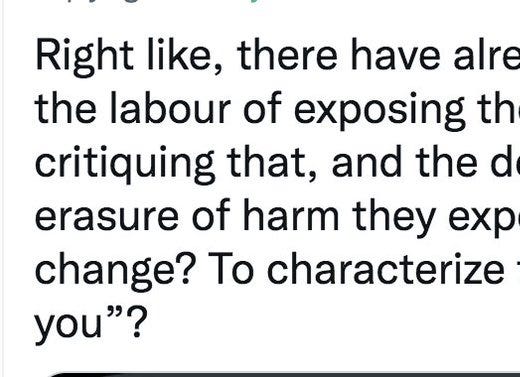E-Pluribus | July 12, 2022
Did anyone expect the American Inquisition, did you hear the one about the British conservatives, and three cheers (or at least one) for misinformation.
A round-up of the latest and best writing and musings on the rise of illiberalism in the public discourse:
Jacob Becker: An American Inquisition
Weeding out error is a noble pursuit, but when exercised without humility, patience and magnanimity, the results can be disastrous. At The Dispatch, Jacob Becker warns that factions on both the left and right are on a crusade for ideological purity that is both hypocritical and dangerous.
Several prominent writers, including Shadi Hamid of the Brookings Institution, have studied the rise of civil or political religion. Writing in The Atlantic in 2021, Hamid acknowledged that “un-American is a common slur, slung by both left and right against the other. Being called un-American is like being called ‘un-Christian’ or ‘un-Islamic,’ a charge akin to heresy.” He explained that this phenomenon exists on both sides of the aisle: “On the left, the ‘woke’ take religious notions such as original sin, atonement, ritual, and excommunication and repurpose them for secular ends.” In other words, in place of eating the forbidden fruit, consider the ill-conceived tweet of one’s youth that cannot be expunged. Where once the pope excommunicated in response to religious subversion, now the mob “cancels” for insufficient professions of faith to the latest cultural orthodoxy.
[ . . . ]
The political religion of the far left mirrors the hypocrisy Webster observed in France. As he notes, “It is remarkable…that with professions of the most boundless liberality of sentiment, and with an utter abhorrence of bigotry and tyranny, these philosophers have become the most implacable persecutors of opinion. …They reject one system to enforce another…The Jacobins differ from the clergy of the dark ages in this—the clergy persecuted for heresy in religion—the Jacobins, for heresy in politics.”
On the right, orthodoxies of a different sort are increasingly pervasive. At the same gathering where they chastised the heresy of Sen. Cornyn for engaging with Democrats on guns, the Texas Republican convention adopted a declaration that President Joe Biden “was not legitimately elected” in 2020. With plenty of evidence repeatedly showing the frivolity of the former president’s stolen election claims, one can only attribute this as a declaration of pure faith, not a matter of fact.
Read it all here.
Gerard Baker: Britain’s Conservatives Rise Above Identity Politics
Although America just celebrated its 246th anniversary of declaring independence from Great Britain, that does not mean we cannot learn from those across the pond. Gerard Baker of the Wall Street Journal introduces readers to some of the candidates to replace Boris Johnson and notes that political affiliation need not fit stereotypes regarding race, birthplace, or any number of other demographic categories.
A Buddhist, a Hindu, a Muslim, a Catholic, a nonbeliever or two.
It all sounds like the introduction to an elaborate, and these days very risky, joke, or the cast of characters in one of those ever-so-woke television commercials with which our ultraprogressive corporate image-makers now regale us multiple times an hour.
It is in fact an almost exhaustive list of the candidates to be the next prime minister of the U.K., following the fall of Boris Johnson last week—the next Conservative prime minister.
[ . . . ]
Does any of this have any relevance in the U.S., where the culture wars over race and sex rage even more fiercely than they do across the pond? America’s racial history and current social context differ in many ways from Britain’s, so there can be no easy parallels. But I think there are several wider lessons from this thoroughly modern mix.
[ . . . ]
But the most important lesson, for which there is welcome and growing evidence, is that most sane, ordinary people simply reject the idea of their mandatory political allocation to some group defined by their birth. Those Tory contenders are arguing about tax and spending, education and international relations. They are attempting to persuade voters with ideas on policy—not by highlighting the number of X chromosomes they have or whether their mother wore a sari.
Read it all.
Isaac Saul: Misinformation Is Here To Stay (And That’s OK)
While “misinformation” and “disinformation” are often lumped together, Isaac Saul writes at Persuasion, that, try as we might, the two are likely permanent side effects of the pursuit of…. information. Much of what we currently believe on any number of subjects is likely wrong to one degree or another, and only time will tell. While we should always strive to improve accuracy and insist on honesty, as long as humans are involved, misinformation will remain with us.
It is challenging to accept the fact that much of what we believe right now will, in 20, 100, 500, or 1,000 years, seem as absurd as some of the ideas above. But it would take a great deal of arrogance to believe anything else.
And yet, that arrogance persists. In fact, it is one of the most important elements of a greater struggle we are facing in the modern world: how to fight the plethora of "misinformation" now available to the public. Arrogance in what we believe now is precisely what creates confidence that we can accurately and productively root out misinformation.
To start, it is worth defining “misinformation”: Simply put, misinformation is “incorrect or misleading information.” This is slightly different from “disinformation,” which is “false information deliberately and often covertly spread (by the planting of rumors) in order to influence public opinion or obscure the truth.” The notable difference is that disinformation is always deliberate.
In recent memory, we’ve seen attempts to address the spread of misinformation take various forms. President Joe Biden recently established, then quickly disbanded, the Disinformation Governance Board, a Department of Homeland Security project designed to counter “misinformation related to homeland security, focused specifically on irregular migration and Russia,” according to Politico. Social media companies and creator platforms like YouTube have attempted to root out “Covid-19 misinformation” from their ranks. More infamously, during the 2020 election, Twitter and Facebook both throttled the sharing of a salacious story by the New York Post about a laptop Hunter Biden left at a repair store that was filled with incriminating texts and images on the ground that it was hacked material or a Russian disinformation campaign. As it turned out, the story was true as the Post had reported it.
All of these approaches tend to be built on an assumption that misinformation is something that can and should be censored. On the contrary, misinformation is a troubling but necessary part of our political discourse. Attempts to eliminate it carry far greater risks than attempts to navigate it, and trying to weed out what some committee or authority considers "misinformation" would almost certainly restrict our continued understanding of the world around us.
Read the whole thing.
Around Twitter
Via Jesse Singal, another publishing industry story about an author pile-on:
Megan McArdle on Rep. Rashida Tlaib’s criticism of the New York Times for publishing inconvenient facts about transgender issues:
And finally, Jay Nordlinger comments on a complaint about “woke” tours of Thomas Jefferson’s Monticello: show the founder’s warts, but don’t forget the face.













